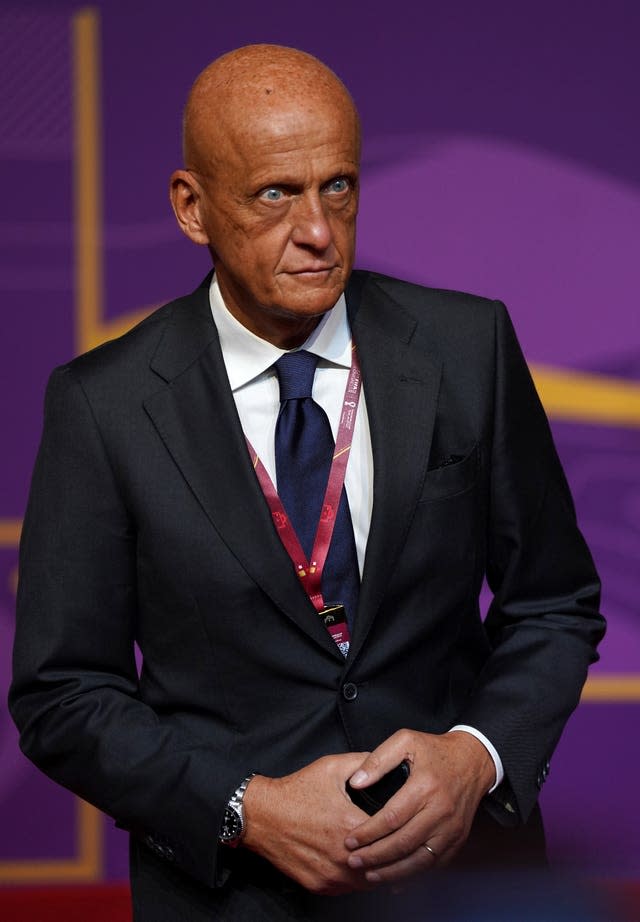IFAB keen to introduce sin bins for professional football after grassroots trial
Sin bins should be trialled at higher levels of football following their successful implementation in the grassroots game, the sport’s lawmaking body has agreed.
Temporary dismissals of players for offences such as dissent and specific tactical fouls were backed by the International Football Association Board (IFAB) at its annual business meeting.
IFAB board members also supported a proposed trial whereby only the team captain may approach the referee in certain major game situations.
IFAB Annual Business Meeting approves trials to improve participant behaviour in football
➡️ News release: https://t.co/8BVDvamgHc pic.twitter.com/IsSKMS0rkZ
— The IFAB (@TheIFAB) November 28, 2023
Tuesday’s meeting in London will shape the agenda for the organisation’s annual general meeting, which will be held on March 2 in Glasgow, where any proposed changes to the laws of the game will be considered for approval.
Protocols and a system for trialling will now be developed.
Board member Mark Bullingham, the chief executive of the Football Association, said: “When we were looking at sin bins – protocol clearly has to be developed – the areas we were looking at were dissent, where it’s worked very, very well in the grassroots game in England.
“We’ve also spoken about other areas, particularly tactical fouls.
“I think frustration for fans watching games when they see a promising counter-attack that’s ruined by that and the question of whether a yellow card is sufficient for that has led to us looking at whether that should be involved in the protocol as well.
“The starting point was looking at player behaviour and dissent – we’re then looking at whether we should extend it into other areas, such as tactical fouls, as well.”
Sin bins were introduced across all levels of grassroots football from the 2019-20 season in an attempt to to improve levels of respect and fair play in the game.
The rule change was implemented up to step five of the National League system and tier three and below in women’s football.
Pierluigi Collina, chairman of the FIFA referees committee who sits on the IFAB’s technical subcommittee, said the proposed trials would “very probably” involve professional football.

Subject to approval at the AGM in March, they could begin as early as next season.
“The idea is to go deeper into all of the details because it’s easy to say we do (it) and it’s a bit more difficult how to regulate everything,” he said.
“But the idea is to start working on this as soon as possible to provide those who would be involved in the trial a protocol to be used.
“The idea is to get it soon.
“The trial was very successful in a grassroots competition. Now we are talking of a higher level, very probably professional or even high professional football.
“We need to draft something that works or is worthy for top football.”
Improving player behaviour was at the heart of the Heathrow meeting, which was chaired by Ian Maxwell, the chief executive of the Scottish Football Association.
Discussions included support of measures to prevent players surrounding match officials, which has become a common sight in the modern game, by limiting access to the referee to team captains at certain times.
Board members also agreed any new VAR measures should not result in any additional delays to matches, while supporting the need to continue developing semi-automated offside technology.
Additionally, they discussed potential strategies to address time lost in matches and tactics aimed at disrupting the game’s tempo, including in relation to the six-second restriction for goalkeepers, delaying restarts and managing injuries.
A possible law amendment, which would result in handball offences for which penalties are awarded being punished in the same way as fouls in terms of yellow and red cards, was a further consideration.
